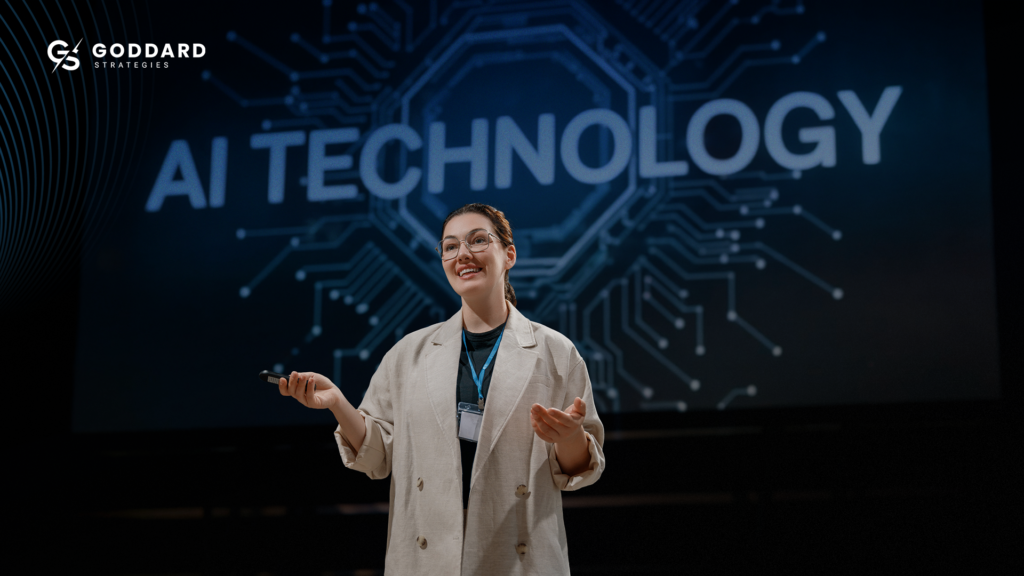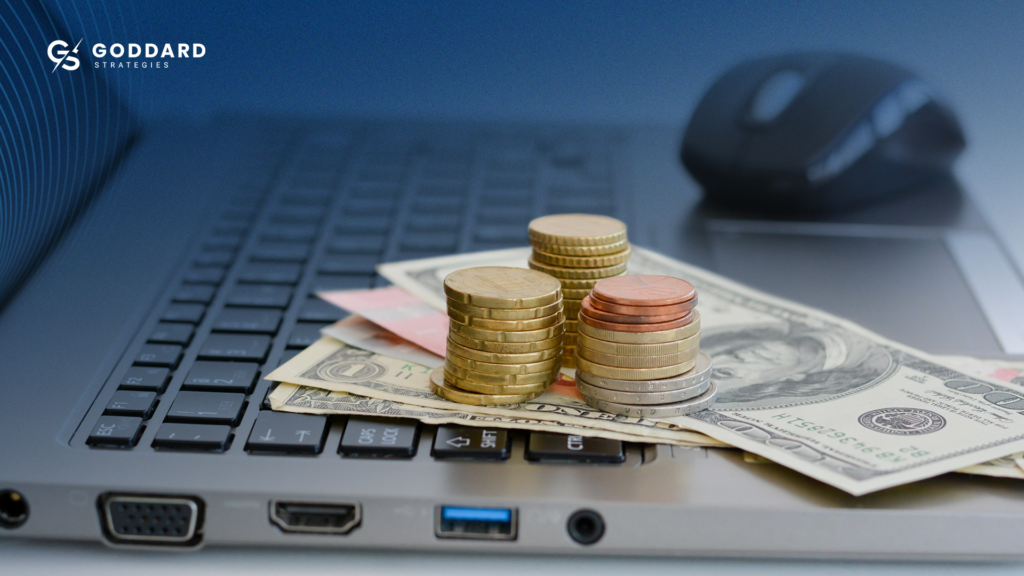Every B2B sales team knows the struggle of the grind. From spending hours chasing down leads, sorting through bloated contact lists, and sending repeated cold emails, there is no question that it’s frustrating and time-consuming.
Here’s a truth bomb: the traditional way of doing lead generation has fundamentally shifted, outpacing past strategies. Buyers nowadays are savvier, and their expectations are higher. On top of that, the window to capture their attention is shrinking fast.
That’s where AI comes in. AI is not just a mere shiny toy but a real, working solution. It’s helping businesses cut through the noise and identify the right prospects faster, smarter, and personalized outreach strategies. AI is not just changing how companies find leads, for it is changing how they think about the entire lead generation process.
In this article, we’ll break down exactly how AI is transforming B2B lead generation, where traditional methods fall short, and how modern marketing strategies powered by AI are driving real business growth.
The Traditional B2B Lead Generation Struggle
When we talk about traditional B2B sales, a large part of a sales representative’s time is taken up by activities that do not generate revenue. In fact, there’s a statistic from Salesforce that says sales reps spend only 28% of their week actively selling, while the majority of their time is focused on tasks such as deal management and data entry. With this said, this strikes an imbalance in time allocation that significantly contributes to several challenges:
- Inefficient Prospecting: Sales teams often invest substantial time in identifying potential leads, yet many of these prospects may not align with the ideal customer profile, leading to wasted efforts.
- Delayed Follow-Ups: Timely engagement is crucial in converting leads. However, administrative burdens can delay follow-ups, resulting in missed opportunities.
- Data Management Challenges: Maintaining accurate and up-to-date customer data is essential for effective lead generation. Yet, manual data entry is time-consuming and prone to errors.
These inefficiencies not only hinder the effectiveness of lead generation efforts but also impact overall business growth. Addressing these challenges is imperative for organizations aiming to optimize their sales processes and achieve better outcomes.
Key AI Applications in B2B Lead Generation
AI isn’t just a single tool. Since its availability, AI now offers a suite of technologies transforming every layer of the lead generation process. From identifying high-quality prospects to automating engagement, here’s how businesses are putting AI to work:
1. Predictive Analytics & Lead Scoring
Not all leads are worth chasing. Some leads are ready to talk, others are just browsing, and some were never a good fit. But that’s not the case with AI, as it helps make that distinction clearer.
With predictive analytics, platforms can analyze things like past interactions, company size, industry, and engagement to score leads based on how likely they are to convert. It’s a smarter way to sort through the noise, helping sales teams focus on the right prospects at the right time.
The best part? These systems learn and improve over time. The more data they see, the better they get at spotting high-potential leads.
2. Conversational AI (Chatbots + AI Voice)
AI-driven chatbots and voice agents are now capable of much more than answering FAQs. These tools engage prospects in real time, prequalify them based on intent, and even schedule follow-ups or demos.
Conversational AI ensures that no lead goes cold due to delayed response. For B2B teams, this 24/7 availability can be the difference between capturing or losing a potential deal. The best part? It all happens without requiring much human intervention.
3. Intelligent Email Outreach
Generic email blasts no longer cut it. Outreach now becomes personalized, timely, and performance-driven, thanks to AI. How is it possible? AI’s algorithm can generate tailored messaging, utilizing buyer personas, industry, behavior, and past interactions.
AI can also automate A/B testing and adjust email timing for optimal open and response rates. This takes the heavy task of doing email marketing and improves engagement at scale.
4. CRM & Data Enrichment Automation
Keeping CRM records clean and current is a full-time job. However, with automated data enrichment through AI, one can pull in real-time intelligence from third-party sources to fill in missing details, flag outdated records, and ensure segmentation accuracy.
When AI is integrated with a CRM, sales teams gain a powerful engine that delivers accurate, up-to-date lead profiles. It also fuels more intelligent targeting and reduces time spent on manual tasks.
5. Behavioral Tracking & Intent Signals
AI doesn’t just record clicks; it can interpret them. AI identifies patterns by analyzing behavior across websites, emails, and other touchpoints that signal buying intent. It learns what actions matter most—like downloading a whitepaper or revisiting a pricing page—and surfaces the leads that are most likely to convert.
The Strategic Edge: AI as a Marketing Strategy Multiplier
AI is doing more than improving lead generation. AI gives businesses a sharper lens into what’s working and what’s not. It turns scattered data into usable insights and replaces manual guesswork with precision.
AI also opens the door to true personalization at scale. AI tailors messaging and experiences based on industry, behavior, and buyer stage—creating relevance that generic segmentation can’t match.
Over time, every campaign becomes smarter. AI learns from each interaction and continuously refines future efforts. It also brings sales and marketing closer together by unifying the view of the customer journey—lead scores, buying signals, and engagement metrics all feed into one system.
The result? Shorter sales cycles, stronger ROI, and a strategy that evolves with the market.
AI as a Marketing Strategy Multiplier: Before vs. After
| Marketing Element | Before AI | With AI |
| Campaign Optimization | Manual A/B testing, post-campaign analysis | Real-time adjustments based on performance data |
| Personalization | Basic segmentation, static messaging | Dynamic, behavior-based content tailored to each lead |
| Sales & Marketing Alignment | Disconnected data, inconsistent lead quality | Shared insights, unified view of buyer journey |
| Channel Strategy | Fragmented efforts across email, ads, SEO | AI identifies high-performing channels and allocates budget accordingly |
| Customer Journey Mapping | Linear funnels, limited visibility | AI tracks multi-touch interactions and adapts journey paths in real time |
| Budget Efficiency | Spend distributed evenly, regardless of ROI | AI reallocates spending toward top-converting tactics and audiences |
| Strategic Agility | Slow feedback loops, static strategy updates | Continuous learning and optimization with every data point collected |
Proof in Performance: AI’s Measurable Impact on Growth
AI quietly becomes one of the most effective growth levers in B2B strategy. This doesn’t mean that it replaces human effort, but because it sharpens it.
Let’s talk about decision-making. AI now transforms decision-making, which would usually take days for human teams to uncover. In fact, nearly 49% of marketers already use generative AI to support ideation and strategic thinking, according to Statista. It’s not just about speed; it’s about clarity.
Scalability-wise, integrating AI into marketing operations significantly enhances this, too, as it automates lead qualification, data enrichment, and content creation, eliminating traditional bottlenecks. In a report by CoSchedule, 55% of marketing professionals recognize AI’s capability to scale content creation across diverse marketing channels without compromising speed.
To sum up, the true advantage isn’t in what AI replaces but in what it unlocks. It unlocks a competitive edge that sharpens with every lead generation campaign, every insight, and every decision.
The Bottom Line: Lead Smarter with AI
B2B marketing is no longer about who can shout the loudest; it’s about who can move the smartest. Let’s face it: AI isn’t just another tool on the shelf, as it now becomes the backbone of how modern businesses grow. It simplifies complexity, cuts through noise, and helps teams focus on what actually moves the needle.
The companies seeing results today are the ones that didn’t wait for a perfect roadmap; they started with the right partner.
Goddard Strategies builds AI-powered lead generation strategies tailored to how your business actually sells. Regardless of your audience, your goals, and your growth stage, our approach blends strategic insight with the right tech to drive measurable results—faster pipelines, better lead quality, and higher ROI. No fluff. No guesswork. Just data-backed execution that works.
If you’re ready to replace outdated tactics with more innovative, scalable systems, let’s build what’s next—together!









